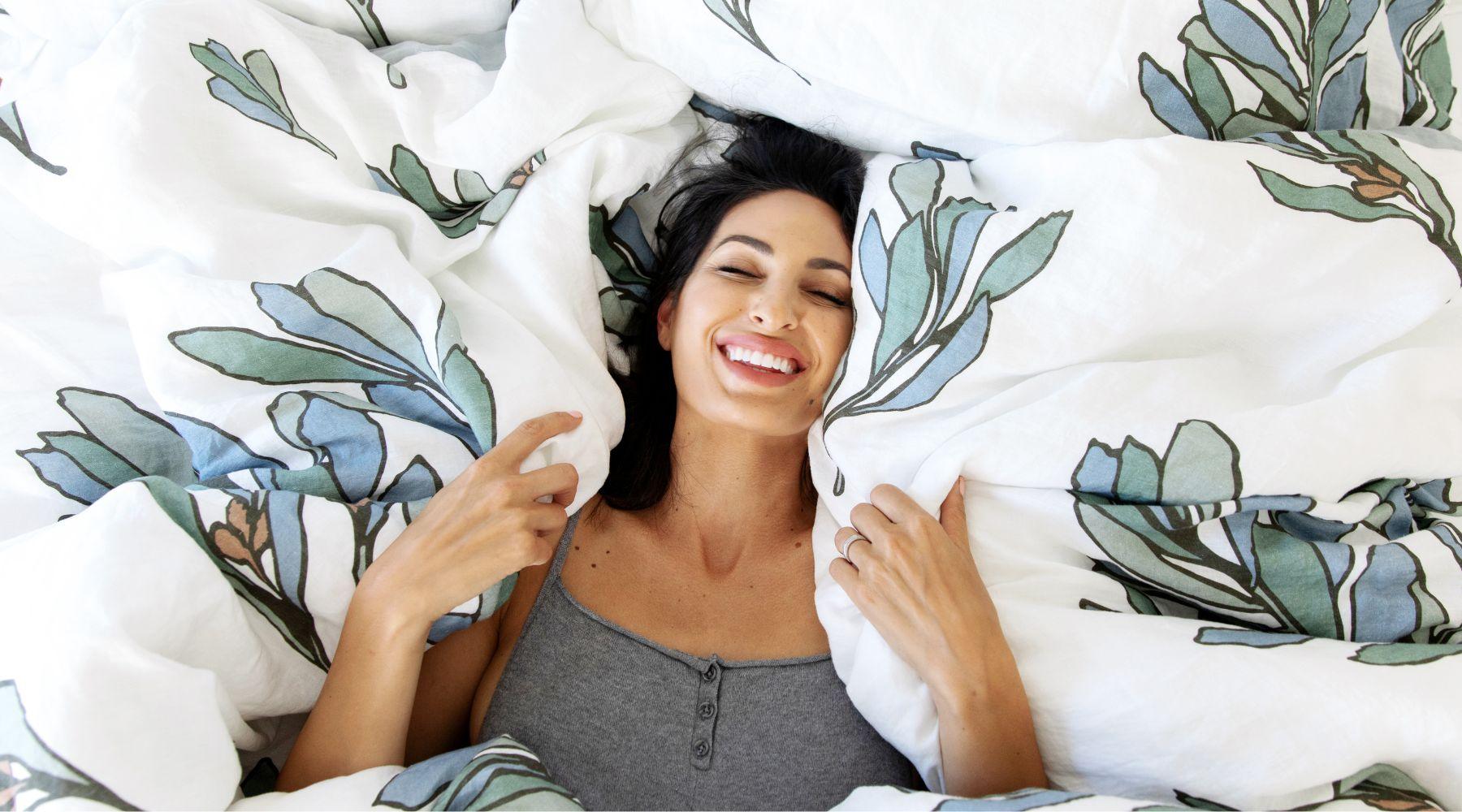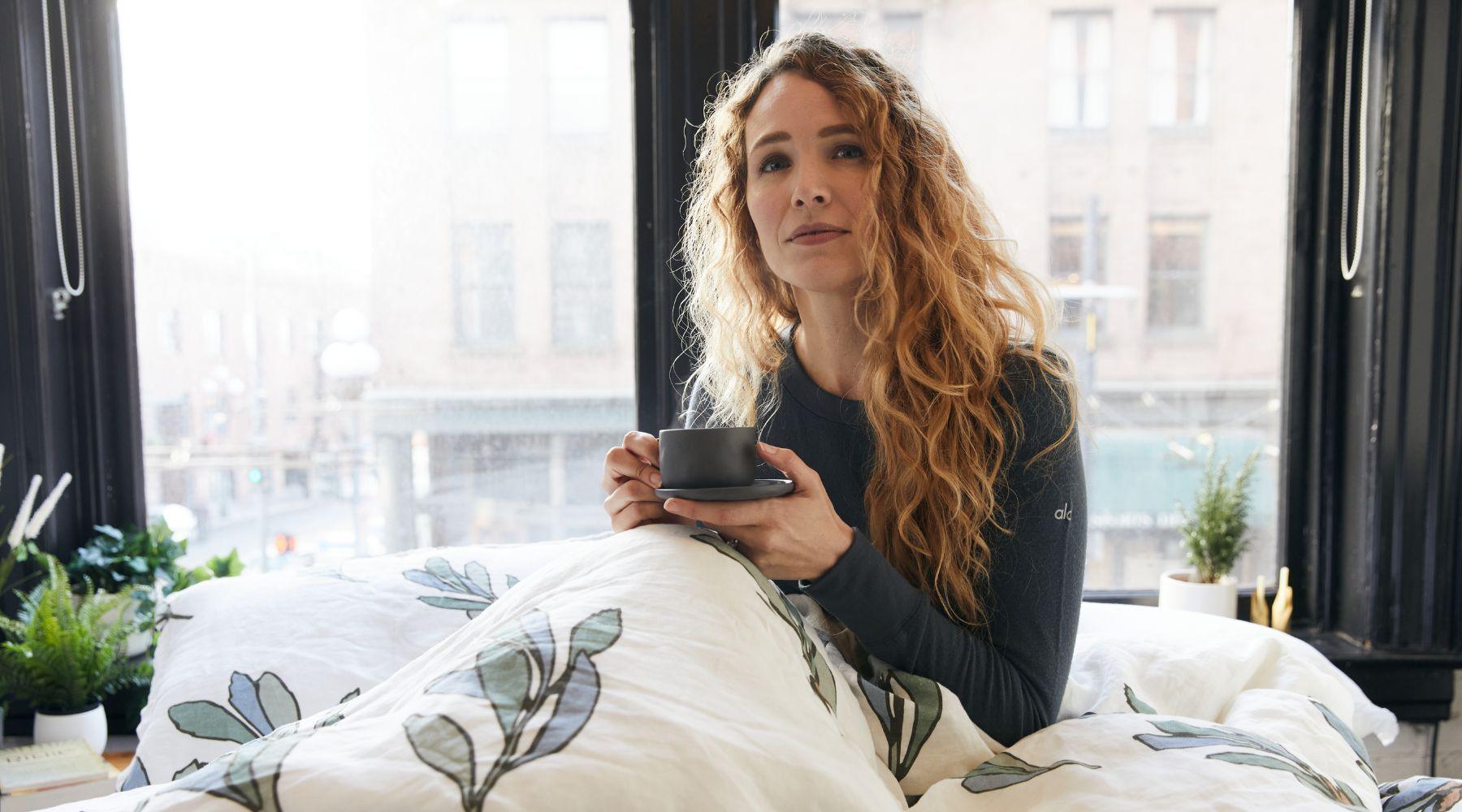
Why is Scandinavian design so popular?
Scandinavian design is not going anywhere anytime soon—and with good reason! Here, we dig into the reasons behind Scandinavian design's timelessness and enduring popularity.
It’s Practical
The practicality of a design trend often determines its longevity. Open shelving looked beautiful on Instagram but quickly fell out of favor when people realized how difficult it was to clean. Going further back in time, inflatable chairs and carpeted bathrooms posed obvious difficulties when it came to functionality and hygiene.
Even in the 1950s “Golden Age” of Scandinavian design, function was always at the forefront of designers’ minds. Furniture has minimal ornamentation, so it’s easier to clean than awkward nooks and carvings. Natural materials, such as wood, leather, and linen, are tough and age well; the same can’t be said for polyester and MDF.
Our Nordic-style bedding is made from organic European linen, a durable and long-lasting textile. Choose from our printed range or go for a solid color if you prefer the natural texture of linen to shine through.
Many Scandi furniture items come with hidden storage: coffee tables, beds, and benches have concealed boxes or drawers for tucking away those unsightly but essential objects. We might all aspire to a completely clutter-free existence but most of us live real, messy lives that make storage necessary. In the words of Swedish designer Frida Ramstedt: “Do you want a place to stay, or to display?”
It’s Timeless
In his YouTube video, “How to Achieve a Timeless Look for Your Home,” Canadian interior designer Nick Lewis lists the best ways to achieve a timeless look: natural materials, neutral colors, quality craftsmanship, subtlety.
Sound familiar? The principles of timeless design align perfectly with the principles of Scandinavian design, so it never goes out of style. Read more in our blog post, “Why Scandinavian Design is Timeless,” which delves into Scandinavian minimalism, color use, functionalism, and personalization.

It’s Minimal
In the same video, Lewis goes on to say, “The less things you have, the less things are going to look dated.” Although Scandinavian design diverges from minimalism in some ways, the two share many elements—not least, an emphasis on having fewer, curated objects. As trends in home design move and change, you’ll only need minor tweaks to keep your home looking modern, which will save your time and sanity in the long run.
Though some individual pieces can be expensive, Scandi design’s minimalist aesthetic means that you can create a complete-looking space with fewer pieces. When paired with the durability of Scandinavian furniture, this often means that a Scandi space can work out cheaper overall. This may explain Scandinavian design’s popularity with a wide range of people, from high-earning celebrities to budget-conscious students.

It’s Adaptable
Scandinavian design has gone through big changes in the last 70 years, adapting to worldwide design trends while retaining the same fundamental principles. For example, Danish design in the 60s used a saturated color palette in keeping with the aesthetics of the time; by the 2010s, however, the palette had faded to the neutral whites, grays, and beiges associated with that decade.
As we progress through the 2020s, homes are becoming more colorful again. Danish design is reflecting that change in the new “Danish Maximalism” movement making waves in Scandinavia and abroad. For more on Danish Maximalism, check out our dedicated blog, where we do a deep dive on this fascinating trend.
Scandinavian design stays popular as it’s not a fixed trend, languishing in a certain era; it’s constantly evolving and taking on elements of current trends, while keeping the qualities that drew people to it in the first place.
With its pared-back, clean-lined look, Scandinavian design can also form a versatile backdrop for other types of design—the recent trend for Japandi (Japanese-Scandi) interiors is an example of this. Many elements of boho, minimalism, and farmhouse styles cross over with Scandinavian design, so they can be adapted into a brand-new look.

It’s Calming
When you look at the most popular design styles over the years, you’ll see that the styles that endure are the ones that make us feel calm and composed; the ones that aid in focus, creativity, relaxation, and sleep.
Scandinavian design, with its neutral, uncluttered aesthetic, supports us in every aspect of our lives—even more so in these days of hybrid working. In his Huberman Lab podcast, Stanford neurology professor Andrew Huberman says that you can optimize your focus by working in an environment that has plenty of natural light and minimal distractions—both key elements of Scandinavian design.
For creative work later in the day, Huberman recommends using dimmer lighting—ideally yellow-toned lamps. With its emphasis on multiple, dimmable lamps and warmer light temperatures, the Scandinavian home office can easily be customized to the type of work you want to achieve.
When it comes to relaxation, many experts recommend a decluttered environment with plenty of greenery. Due to Scandinavians’ abiding love of nature, plants feature prominently in Scandinavian design—this includes live plants, dried plants, and plant prints.
For restful sleep, look no further than our Nordic-style bedding made from organic linen. Linen is naturally thermoregulating, meaning that it keeps you cool when it’s warm and warm when it’s cool. Far from being just a summer fabric, linen can stay on your bed year-round.
We can’t talk about relaxation without mentioning hygge, the classic Danish concept of coziness and companionship. Although hygge became a trendy buzzword in 2016, the ideas behind it are timeless: a hygge environment equipped with candles, cushions, blankets, and your favorite foods will always bring consolation and comfort, whether you’re entertaining friends or savoring a moment of solitude.
What’s your favorite aspect of Scandinavian design? Do you have any Scandinavian design pieces in your home? Let us know on Instagram, Pinterest, Facebook, or Twitter!







Leave a comment
This site is protected by hCaptcha and the hCaptcha Privacy Policy and Terms of Service apply.